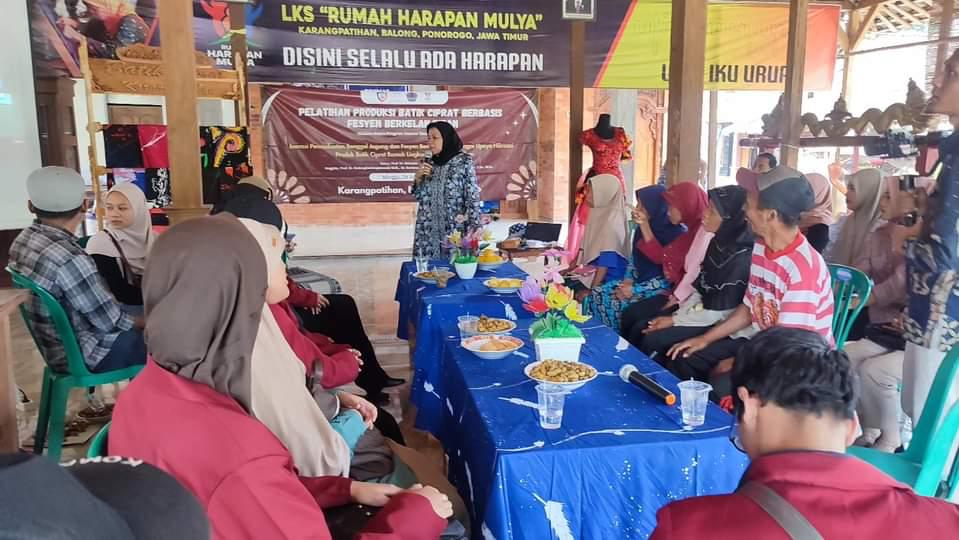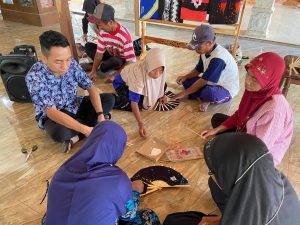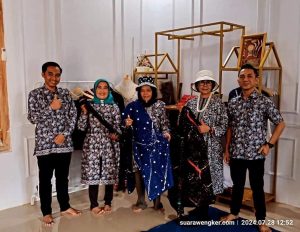
UNS, UMPO, UPG, and STIE Arlindo Collaborate to Provide Training and Support to the Karangpatihan Community
Universitas Sebelas Maret (UNS), in collaboration with Universitas Muhammadiyah Ponorogo (UMPO), Universitas Primagraha (UPG), and STIE Arlindo, conducted a community service program titled “Training and Support for Utilizing Corn Cobs and Sustainable Fashion” in Karangpatihan Village, Ponorogo, on Sunday, July 28, 2024.
The community service team was led by Prof. Dr. Rahmawati, M.Si, Ak., along with its members M. Rudianto, S.E., S.Sn., M.Sn., Dr. Rochmat Aldi Purnomo, S.E., M.Si., Sarah Rum Handayani Pinta, M.Hum., Siti Nurlaela, and Isnayni Sabila.
 The team provided training on sustainable fashion through the production of Batik Ciprat using corn cobs to workers with disabilities in Karangpatihan Village and disabled students from Universitas Muhammadiyah Ponorogo (UMPO).
The team provided training on sustainable fashion through the production of Batik Ciprat using corn cobs to workers with disabilities in Karangpatihan Village and disabled students from Universitas Muhammadiyah Ponorogo (UMPO).
As the main speaker, Prof. Rahmawati outlined several innovations introduced in the training, including the use of corn cobs in waste processing, natural dyes as alternatives to synthetic dyes traditionally used, and the application of bone meal to enhance the efficiency of Batik Ciprat production.
“The objectives of this training and support activity are twofold: first, to teach the use of processed corn cobs for waste management. Second, to introduce natural dyes as an alternative to synthetic ones, as international consumers are increasingly interested in natural colors,” she explained.
Dr. Rochmat Aldi added that the objective of the program is to equip the Karangpatihan community, especially UNS’s partner, with skills in sustainable fashion and waste management, specifically how to use corn cobs in Batik Ciprat production.
“And this effort doesn’t end with us; it can be further developed using other methods, such as fans or improved batik techniques and motifs that are more sustainable,” he noted.
Meanwhile, Karangpatihan Village Head Eko Mulyadi expressed his gratitude to the FEB UNS Community Service Team for their assistance in alleviating poverty in the village. “Thank you to all parties who have contributed to our efforts to reduce poverty in Karangpatihan. We are also deeply grateful to everyone who has collaborated to help us develop Batik Ciprat,” he said.
He praised the training as extraordinary, highlighting its potential to help the Karangpatihan community with the development of Batik Ciprat and the implementation of efficient drying techniques.
This event is expected to have a positive impact on the economic and social development of Karangpatihan Village and to promote the use of natural materials in the Indonesian batik industry.

